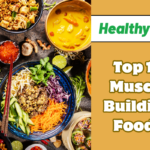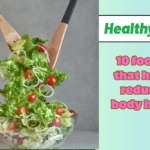16 Foods for High Protein Meals
1. Eggs have high protein
Eggs are renowned for their high protein content, making them a popular choice for individuals looking to boost their protein intake. With approximately 6 grams of protein per large egg, eggs provide a significant protein punch in a relatively small package. What sets eggs apart is their status as a complete protein source, containing all nine essential amino acids necessary for muscle repair and growth.
Additionally, eggs are rich in other essential nutrients such as vitamins D, B12, and riboflavin, as well as minerals like iron and selenium, which play crucial roles in various bodily functions. The versatility of eggs in cooking further enhances their appeal, allowing them to be incorporated into a wide range of dishes, from omelets and scrambles to baked goods and salads.
2. Chicken Breast contain high protein
Chicken breast is indeed prized for its high protein content, making it a staple in many diets focused on muscle building and weight management. With approximately 31 grams of protein per 3-ounce (85-gram) serving, chicken breast offers a substantial protein boost while being relatively low in calories and fat.
Chicken breast is a complete protein source, providing all nine essential amino acids necessary for muscle repair and growth. Beyond its protein content, chicken breast also boasts other essential nutrients such as niacin, vitamin B6, phosphorus, and selenium, contributing to overall health and vitality.
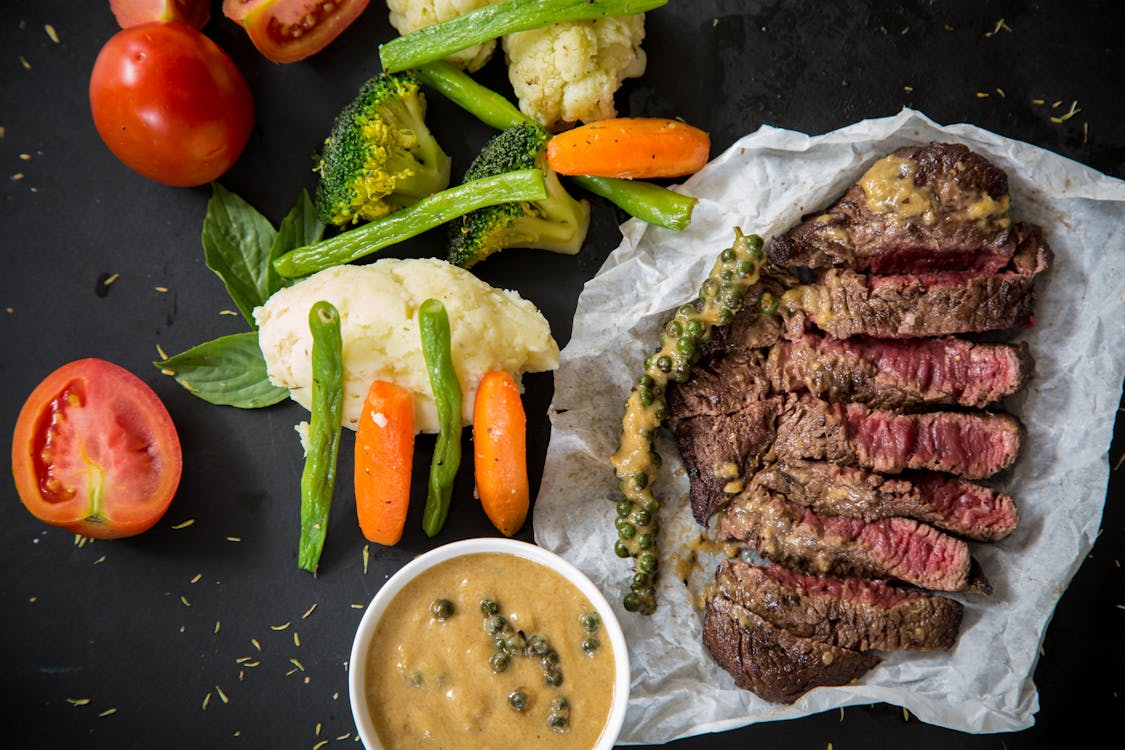
3. Fish is a good source of protein
Fish is widely regarded as an excellent source of protein, offering a multitude of nutritional benefits beyond just its protein content. With varying amounts of protein depending on the type of fish, most species provide around 20 grams of protein per 3-ounce (85-gram) serving. What sets fish apart is its high-quality protein, containing all the essential amino acids necessary for muscle repair and growth.
Fish is rich in omega-3 fatty acids, which are beneficial for heart health, brain function, and reducing inflammation in the body. Furthermore, fish is a good source of vitamins and minerals such as vitamin D, vitamin B12, iodine, and selenium, which play crucial roles in various bodily functions.
Read Also:
Focus While Studying: 10 Proven Methods
4. Lentils contain high protein
Lentils are indeed celebrated for their high protein content, making them a valuable addition to vegetarian and plant-based diets. With approximately 18 grams of protein per cooked cup, lentils offer a substantial protein boost while being low in fat and cholesterol-free.
Lentils are a significant source of dietary fiber, providing both soluble and insoluble fiber that promotes digestive health, aids in weight management, and helps regulate blood sugar levels.
5. Beans have high protein
Beans are renowned for their high protein content, making them a staple in vegetarian and plant-based diets as well as a valuable addition to omnivorous diets. With approximately 15 grams of protein per cooked cup, beans offer a substantial protein boost while being relatively low in fat and cholesterol-free.
Beans are rich in dietary fiber, providing both soluble and insoluble fiber that promotes digestive health, aids in weight management, and helps regulate blood sugar levels.
Read Also:
Pregnancy: Signs, Symptoms, Overview, Health Tips You Should Know
6. Tofu contains good amount of protein
Tofu, also known as bean curd, is revered for its impressive protein content, making it a popular choice for vegetarians, vegans, and individuals seeking alternative protein sources. With approximately 10 grams of protein per 3-ounce (85-gram) serving, tofu offers a substantial protein boost while being relatively low in calories and fat.
Additionally, tofu is a valuable source of other essential nutrients such as iron, calcium, magnesium, and phosphorus, which contribute to overall health and well-being. Its versatility in culinary applications further enhances its appeal, allowing it to be incorporated into a wide range of dishes, from stir-fries and salads to soups and sandwiches.
7. Almonds have high protein quantity
With approximately 6 grams of protein per ounce (28 grams), almonds offer a substantial protein punch while also providing a wealth of other essential nutrients. What distinguishes almonds is their status as a plant-based protein source, making them particularly appealing to vegetarians, vegans, and individuals seeking alternative protein options.
Almonds are rich in healthy fats, particularly monounsaturated fats, which are beneficial for heart health. They also contain fiber, vitamins, minerals, and antioxidants, further enhancing their nutritional value.
8. Cottage Cheese is a good source of high protein
Cottage cheese is widely recognized as a valuable source of high-quality protein, making it a popular choice among individuals seeking to increase their protein intake. With approximately 14 grams of protein per half-cup serving, cottage cheese offers a substantial protein boost while being relatively low in calories and carbohydrates.
Additionally, cottage cheese is rich in other essential nutrients such as calcium, phosphorus, and selenium, which contribute to bone health, energy metabolism, and immune function.
9. Greek Yogurt contains protein
Greek yogurt is celebrated for its impressive protein content, making it a popular choice among health-conscious individuals looking to boost their protein intake.
With approximately 17 grams of protein per 6-ounce (170-gram) serving, Greek yogurt offers a significant protein punch while also providing a range of other essential nutrients. What distinguishes Greek yogurt is its strained nature, which removes much of the liquid whey, resulting in a thicker, creamier texture and a higher concentration of protein per serving compared to regular yogurt.
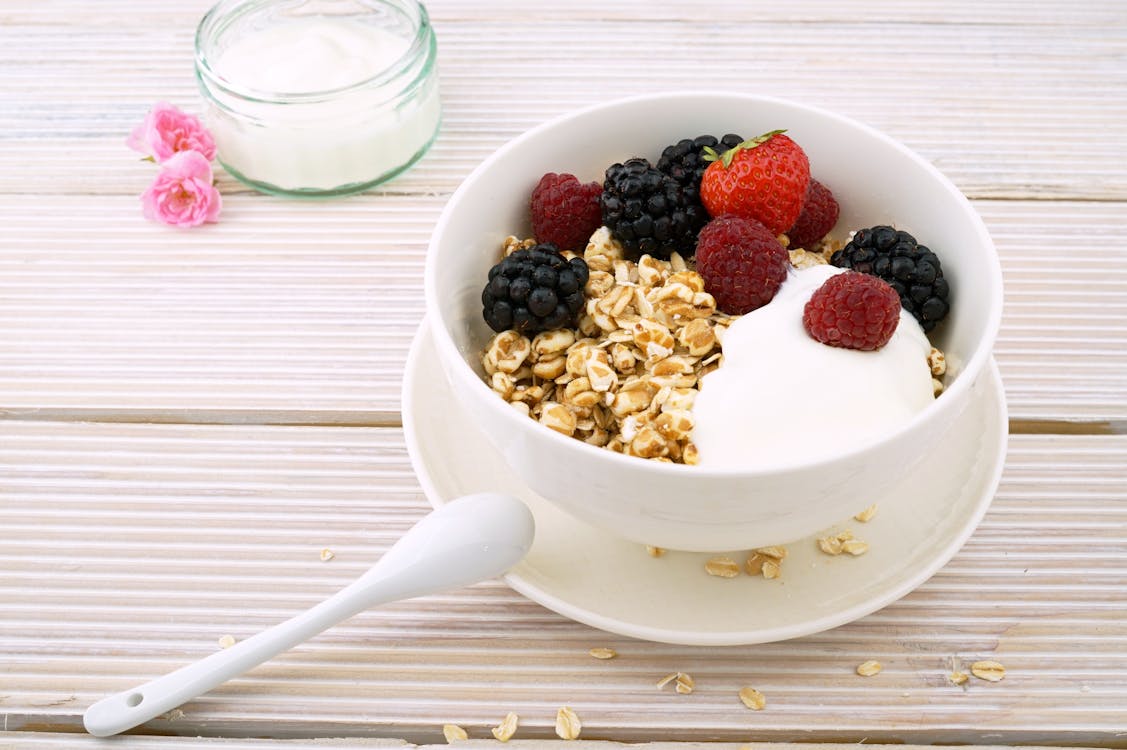
10. Milk contains high protein
Milk is widely recognized for its high protein content, making it a staple in many diets and a popular choice among individuals seeking to increase their protein intake. With approximately 8 grams of protein per cup, milk offers a significant protein boost while also providing essential vitamins and minerals.
Its versatility in culinary applications further enhances its appeal, allowing it to be enjoyed on its own, added to cereal, coffee, or tea, or incorporated into recipes such as smoothies, soups, and baked goods. Whether enjoyed as a beverage, a meal component, or an ingredient, milk stands as a nutritious and convenient source of protein for individuals looking to support their health and meet their dietary needs.
11. Quinoa is a good source of protein
Quinoa is revered for its status as a valuable source of protein, particularly among individuals following vegetarian or plant-based diets. With approximately 8 grams of protein per cooked cup, quinoa offers a substantial protein boost while also providing a range of other essential nutrients.
Additionally, quinoa is rich in fiber, vitamins, and minerals, including magnesium, iron, and zinc, which contribute to digestive health, energy metabolism, and immune function.
12. Pumpkin seeds contain protein
Pumpkin seeds, also known as pepitas, are indeed a noteworthy source of protein, offering a variety of nutritional benefits. With approximately 8 grams of protein per ounce (28 grams), pumpkin seeds provide a significant protein boost in a relatively small serving size. What distinguishes pumpkin seeds is their rich nutrient profile, containing essential vitamins and minerals such as magnesium, zinc, and iron, along with healthy fats and fiber.
Pumpkin seeds are a valuable source of antioxidants and phytonutrients, which contribute to overall health and well-being. Their versatility in culinary applications further enhances their appeal, allowing them to be enjoyed as a snack on their own, sprinkled over salads or yogurt, or incorporated into baked goods and savory dishes.
13. Peanuts and Peanut Butter are a source of high protein
Peanuts and peanut butter are indeed notable sources of high-quality protein, making them popular choices among individuals seeking to increase their protein intake. With approximately 7-8 grams of protein per ounce (28 grams) for peanuts and about 8 grams of protein per 2-tablespoon serving for peanut butter, they offer a significant protein boost.
They are rich in healthy fats, particularly monounsaturated fats, which are beneficial for heart health. Peanuts and peanut butter also provide essential vitamins and minerals, including vitamin E, magnesium, and potassium, further contributing to overall well-being.
14. Soybeans contain high protein
Soybeans are renowned for their high protein content, making them a valuable source of plant-based protein for various diets. With approximately 36 grams of protein per cooked cup, soybeans offer a substantial protein boost while being relatively low in saturated fat and cholesterol-free.
Whether incorporated into savory dishes or enjoyed as a plant-based protein source, soybeans stand as a nutritious and sustainable option for individuals looking to meet their protein needs and support their overall health and well-being.
Read Also:
15. Turkey Breast is high protein food
Turkey breast is indeed a notable source of high-quality protein, offering a range of nutritional benefits for individuals seeking to support their health and fitness goals. With approximately 24 grams of protein per 3-ounce (85-gram) serving, turkey breast provides a substantial protein boost while being relatively low in calories and fat, particularly saturated fat.
Additionally, turkey breast is rich in essential nutrients such as niacin, vitamin B6, phosphorus, and selenium, which play crucial roles in various bodily functions including metabolism, immune function, and thyroid health.
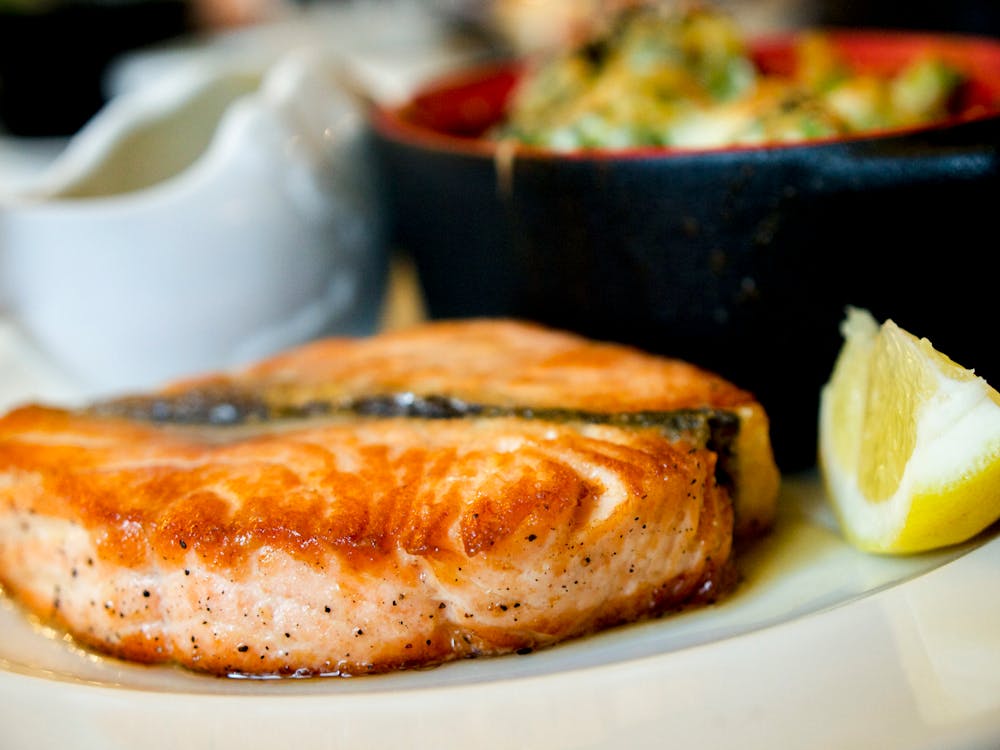
16. Bison is a high protein food
Bison is indeed a standout option for individuals seeking a high-protein food with additional nutritional benefits. With approximately 21 grams of protein per 3-ounce (85-gram) serving, bison offers a significant protein boost while being relatively low in fat compared to other red meats.
Additionally, bison is rich in essential nutrients such as iron, zinc, and vitamin B12, which play crucial roles in energy metabolism, immune function, and red blood cell production. Its lean nature and nutrient density make bison an excellent choice for individuals looking to support muscle growth, maintain a healthy weight, and meet their dietary protein needs.


